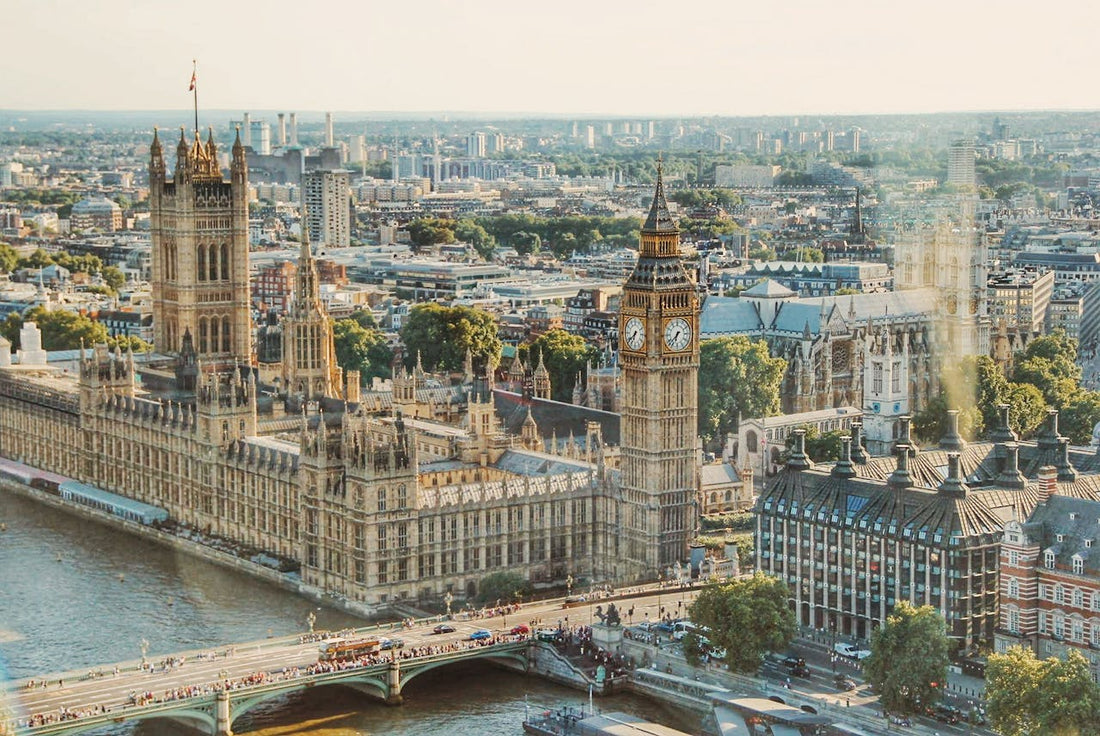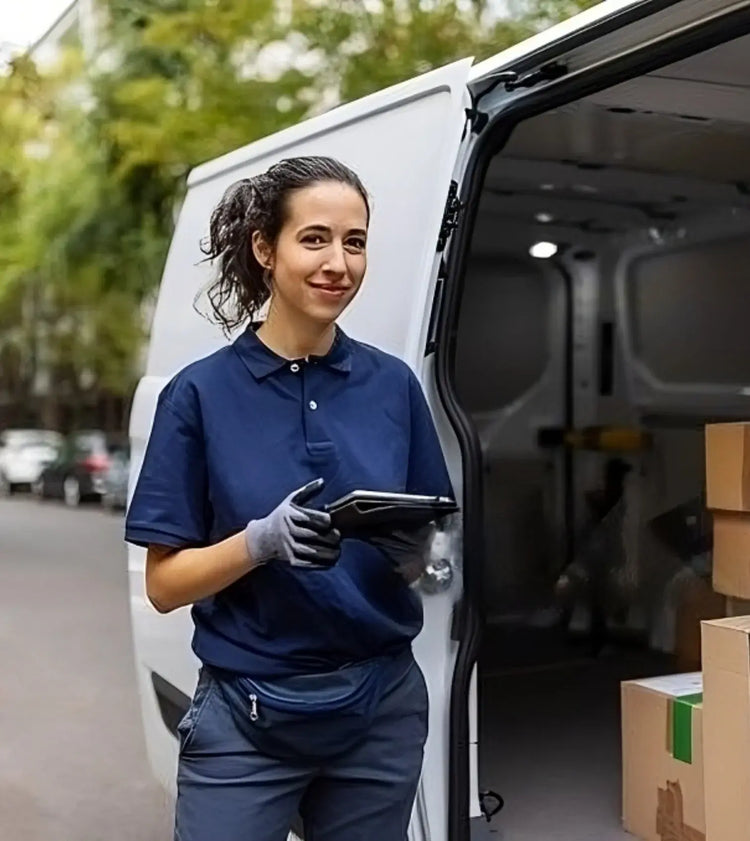
Moving To London? Here's What You Should Know

Share
Moving to London means living in one of the most exciting cities on the planet.
It’s one of the most diverse cities in the world, where you’ll find hundreds of languages spoken and a melting pot of cultures.
With such a mix of people, there’s always something new to explore - whether it's food, festivals, or simply meeting new people.
London is huge, covering around 600 square miles, so there’s plenty of space to discover your own favourite spots, from quiet parks to lively markets.
In short, moving to London means living in one of the most exciting cities on the planet, full of energy, diversity, and endless possibilities. But what do you need to know before you make your move? Let's explore...
Getting Ready To Move To London
Before you pack your bags, you’ll need to sort out a few things. If you’re planning to live in London for a while and you're not from the UK or Ireland, you’ll probably need a visa.
The UK’s visa process can be quite strict and involves a fair amount of paperwork. There are several types of visas available, whether you’re coming to work, study, or join family.
If you’re only planning a short stay, certain nationalities can visit for up to six months without a visa, but remember, you won’t be allowed to work during this time. It’s best to check the specific requirements for your country before you make any plans.
If you do have the right to work and live in London, it’s also important to plan your finances. London isn’t cheap, so having a good grasp of the financial side of things will help you budget better.
Also, finding somewhere to live should be high on your list. Most people moving to London for the first time start with a short-term rental. This gives you the flexibility to explore different areas and see where you’d like to settle more permanently.
If you need help finding someone to help you move, see our guide around finding a mover in London.
Finding The Right Neighbourhood To Move To In London
London is a city of villages, each with its own unique character and vibe.
Choosing the right neighbourhood can make all the difference to your experience of living here.
If you’re moving with a family, areas like Richmond, Battersea, and Kensington are popular. Richmond offers a leafy, suburban feel with plenty of green spaces and a strong sense of community, while Battersea provides a balance between central London buzz and a more laid-back atmosphere, with riverside views.
Kensington is pricier but known for its safety, top-notch schools, and beautiful homes.
For young professionals, Dalston, Fitzrovia, and Shoreditch are hot spots.
Dalston is hip and vibrant, with a mix of street markets, new-build apartments, and a strong community feel.
Fitzrovia is more low-key but still central, with easy access to many business districts and a more residential vibe. Shoreditch is a tech and start-up hub, famous for its street art, quirky cafes, and a buzzing nightlife scene, making it a favourite among creative professionals.
If you’re after a lively social scene, Camden, Soho, and Brixton are excellent choices too.
Camden is known for its alternative culture, unique market, and live music venues. Soho, the heart of London’s nightlife, is packed with pubs, clubs, and LGBTQIA+ venues, and there’s always something happening here. Brixton offers a multicultural experience, with a fantastic mix of food, music, and markets, as well as a strong sense of community.
If you’re only planning a short stay, it’s best to find somewhere central and well-connected, like Westminster, Covent Garden, Camden, or Soho. These areas are not only close to major attractions but also provide easy access to the rest of the city.

Understanding The Cost of Living in London
There’s no way around it - London is an expensive city to live in. Compared to other European cities, it can be up to 75% more expensive than places like Budapest.
Rent is one of the biggest costs here. A one-bedroom flat in the city centre averages around £2,178 per month, but prices can vary depending on the neighbourhood.
Generally, renting is the best option when you first move to London, as it allows you to explore the city without a long-term commitment.
Buying property in London can be a good investment, but it comes with additional costs and complexities like Stamp Duty, and it’s something to consider only when you’re sure about settling here long-term.
Finding Accommodation When Moving To London
When it comes to finding a place to live, London’s rental market can be competitive.
For short-term rentals, websites like Airbnb, Booking.com, and Homelike are good places to start. These platforms provide fully furnished options that make the transition smoother.
Once you’ve settled in, you can explore long-term rentals through sites like Rightmove, Zoopla, or local estate agents.
Many people opt for a short-term lease of three months to start with, giving them time to explore the city and find a neighbourhood they really like before committing to a longer contract.
Getting Around London
London’s public transport system is one of the best in the world, and you’ll likely rely on it heavily.
The Tube (London Underground) covers most of the city with 272 stations and over 400 kilometres of track. There are also loads of bus routes, overground trains, and even trams.
Most Londoners don’t bother with a car due to the excellent public transport and the city’s congestion charge and Ultra Low Emission Zone fees.
Instead, cycling is becoming increasingly popular, and the city has a good number of cycling lanes and bike rental places available.

Schools and Education in London
If you’re moving to London with children, you’ll find that the city is home to almost 3,000 schools, ranging from outstanding public schools to prestigious private schools.
London is known for its educational excellence, and there’s a wide variety of schools to choose from depending on your location and needs.
For higher education, London has around 40 universities, many of which are world-renowned, making it a top destination for students from around the world.
Healthcare in London
Healthcare in London is covered by the National Health Service (NHS), which is funded by taxes and provides free healthcare at the point of use for most residents.
If you’re eligible for the NHS, you can access care as soon as you arrive, with no waiting period.
However, for quicker access and potentially higher standards, some people buy private healthcare coverage. Providers like Bupa, AXA, and Aviva offer plans that start at around £1,000 per year.
Setting Up Your Finances In London
Setting up a bank account is important when moving to London. Online banks like Wise and Monzo are a convenient option and can often be set up before you even arrive.
Once you’re settled, opening a traditional account with a bank like Barclays or Halifax can be useful for managing day-to-day finances and paying bills.
Combining an online account with a traditional one provides flexibility and convenience.
Bringing Pets To London
London is quite pet-friendly, but there are some hurdles to bringing your furry friends with you. Your pet will need to be microchipped, vaccinated, and have a pet passport if they are coming from outside the UK.
Finding pet-friendly accommodation can be a challenge, but London has many green spaces, pet-friendly cafes, and a strong pet community, which makes it worth the effort. A pet relocation agency can help with the paperwork and logistics if needed.
Sorting Out Utilities And Services
When you first move to London, sorting out utilities like gas, electricity, and internet can be a bit of a headache, especially if you don’t have a permanent address yet.
That’s why many people start with a short-term rental where utilities are already taken care of. Once you find a more permanent place, comparison sites can help you find the best deals for these services.
Don’t forget about council tax, a local tax that covers services like waste collection and street cleaning, which you’ll need to budget for.
Is London Safe To Live In?
Like any big city, London has its ups and downs when it comes to safety.
Overall, London is relatively safe, but it’s wise to stay alert, especially in busy areas like tourist spots and the Tube, where pickpockets can be an issue. Some parks may feel a bit dodgy after dark, but they’re generally fine during the day.
Just use common sense - keep your belongings close, stay aware of your surroundings, and don’t take unnecessary risks.
Final Tips for Moving to London
Moving to London is a big adventure, and it comes with both excitement and challenges.
The best advice is to start with a short-term rental, which gives you the flexibility to explore different neighbourhoods and figure out where you feel most at home.
Use the first few months to network, get to know the city, and find your footing. London can be a bit overwhelming at first, but once you settle in, you’ll see why so many people fall in love with it and never want to leave.
With a bit of preparation and an open mind, you’ll be well on your way to making the most of life in this incredible city.
Tempted To Move To London?
We'd love to help you with your move! The Box Co. is a professional moving company in London that will collect your items from your home, store them for as long as you need and then deliver them to your new home in London.
Submit your details below to get started today!



